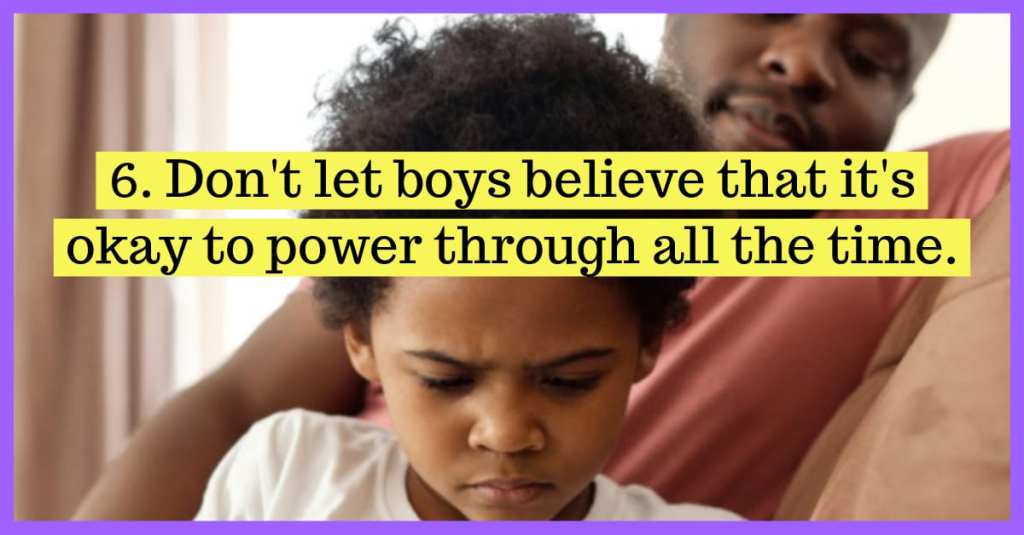For generations, society has placed a premium on the stoic male figure. The boy, the young man, the husband and father, the patriarch, who doesn’t cry. Doesn’t need anyone, never loses control over his emotions or his family. Who shoulders it all without help, without complaint.
A man who has friends, but ones he drinks beer with, or watches the game or coaches his children with, not men he talks to about anything of depth. Certainly not men he could hug, or cry in front of, or reach out to when it all got to be too much.
Those things have historically been left to the womenfolk, and men?

Image Credit: Pexels
They’re suffering for an inability to connect with themselves, and with others, and to recognize that being able to access one’s emotion makes him a healthy human being – nothing more, and nothing less.
Those stigmas, those expectations, are slowly starting to change. A generation of parents are focusing on emotional intelligence, on managing feelings instead of swatting in order to change behavior.
If you’re a man raising sons, I submit to you that there is no one more important in your boy’s, life. He’s watching you, learning and absorbing and forming expectations for himself, for his friends, for the world around him.
Here are some things to keep in mind when considering how to avoid the pitfalls of toxic masculinity in the. next generation.
1. Talk to your son the same way you would talk to a daughter.
Pay attention to what sort of messages they’re getting from society about what they should or shouldn’t be, and talk to them about why that is or isn’t correct, from your point of view.

Image Credit: Pexels
2. Bring up tough topics in situations where eye contact is easily avoided.
This is one of the best ways to engage a young boy in conversation. You can suggest something like a bike ride, but the fact is, you’ll likely find yourself in the car with your kids more often than not, and it’s a great place to “trap” them, but also let them not look at you when things get awkward.
3. Ask open ended questions.
This help the boys in your life develop a vocabulary they can use to discuss emotions. Girls tend to do this naturally with one another, but since boys typically don’t, parents need to put in the work.
4. Model being emotionally vulnerable and communicating frankly and honestly.
If you’re the primary male in your son’s (or another boy’s) life, don’t just talk like this when you’re with him – do it when you’re with your friends, your family, your wife, and your other children as well.
5. Avoid the pitfall of telling boys to act older.
When you’re telling a young boy to “get it together” or “stop overreacting” or that he’s “crying over nothing,” you’re telling him to be something he’s not. You want the kid to be able to trust you enough to express his emotions out loud.
6. Don’t let boys believe that it’s okay to power through all the time.
Be part of the change we all want to see in the world. Let your son know that it’s okay to take care of himself emotionally, mentally, as well as physically. Life sometimes necessarily puts those things on hold, but they need to know they need to take days to validate how things have impacted them emotionally.

Image Credit: Pexels
7. You’re not there to “fix” anything.
With kids, probably the most important thing to remember is that, when it comes to emotions and developing emotional intelligence is you’re there to be someone who, in that moment, is calm and supportive – someone who can hold the feelings that spill over so that the child doesn’t feel full to bursting – and someone who will just listen.
We all need that in our lives, and as you fathers are figuring out how to show your sons that fact, please remember that all of this advice applies to you, too.
Take care of yourselves, whether your boys or new fathers or mentors or grandfathers finding themselves with a second chance to shape a young life.
You won’t be able to take care of anyone else if you don’t secure your own mask first.
